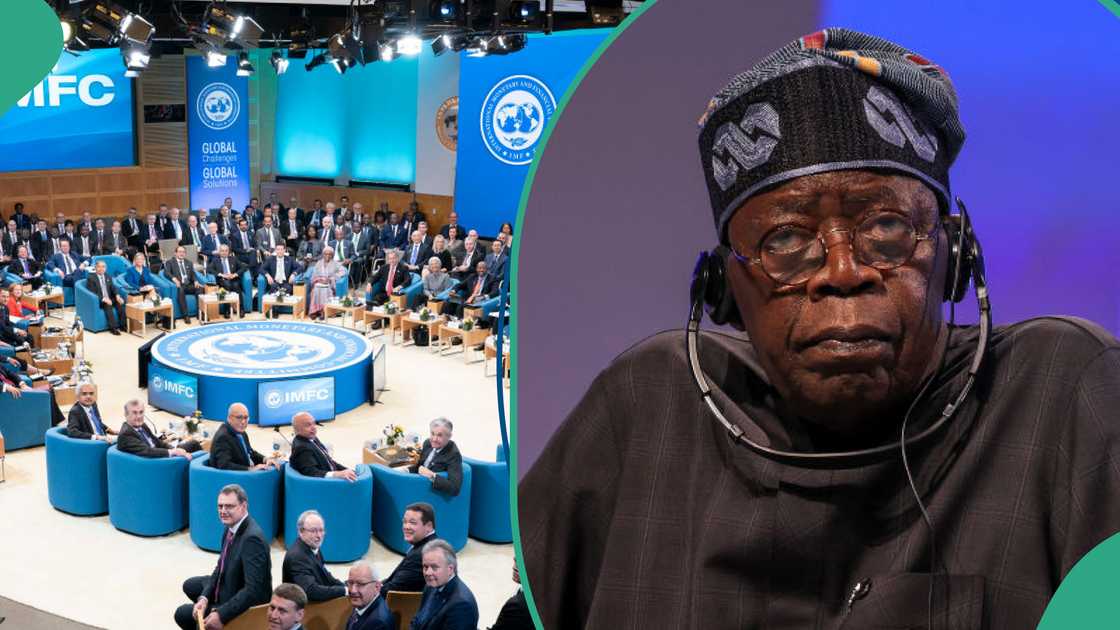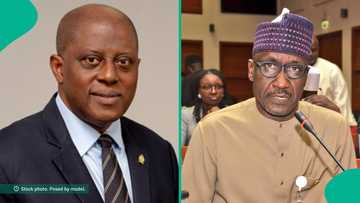IMF Responds to Claims It Directed President Tinubu To Remove Fuel Subsidy, Devalue Naira
- The IMF has clarified that Nigeria’s recent fuel subsidy removal was a decision made independently by the Nigerian government
- The Bretton Institution explained that there was no directive from the IMF for President Bola Tinubu to make the decision
- Since the removal of fuel and naira subsidy, the cost of living in Nigeria has become more challenging for citizens
Do not miss an opportunity to join FREE webinar by Legit.ng. AI in Action: Practical Skills for Creative Professionals. Register here!
Legit.ng journalist Dave Ibemere has over a decade of business journalism experience with in-depth knowledge of the Nigerian economy, stocks, and general market trends.
The International Monetary Fund (IMF) has dismissed suggestions that it played a role in President Bola Tinubu's administration's decision to remove fuel subsidy.
Abebe Selassie, its director for the African Region, stated this while speaking at the IMF and World Bank annual meetings in Washington, D.C.

Source: Getty Images
IMF's reaction followed widespread criticism of Nigeria’s fiscal reforms, which have triggered inflation and increased economic hardship for many citizens.
PAY ATTENTION: Legit.ng Needs Your Help! Take our Survey Now and See Improvements at LEGIT.NG Tomorrow
The petrol pump price at filling stations rose between N197 to the current price of N1,200 and N1,300, while naira has dropped to as low as N1,700 on the black market.
Selassie stressed that IMF’s involvement with Nigeria is limited to routine economic dialogue rather than policy mandates, Vanguard reports.
He said:
“The decision was a domestic one. We don’t have programmes in Nigeria. Our role is limited to regular dialogue, as we have with other nations like Japan or the UK."
Selassie acknowledged the IMF’s guidance on managing public resources but emphasised that the subsidy removal was part of the Nigerian government’s strategy for economic sustainability.
He added:
“Ultimately, these are profound domestic and political decisions that the government had to make."
IMF advises Nigerian government
Selassie noted that such measures aim to improve public resources for Nigeria’s development.
While recognising the immediate challenges posed by the reform, Selassie urged the Nigerian government to consider implementing social support systems to ease the burden on vulnerable groups.
He said:
“We recognise the significant social costs involved we encourage that government expand social protection to help those most affected by the transition."
IMF predicts naira stability
Legit.ng earlier reported that the Central Bank of Nigeria's efforts to clear foreign exchange backlogs and recent interest rate hikes were credited with stabilising the naira.
The naira's struggles has been a subject of intense concerns among stakeholders in the country.
Proofreading by James, Ojo Adakole, journalist and copy editor at Legit.ng.
PAY ATTENTION: Сheck out news that is picked exactly for YOU ➡️ find the “Recommended for you” block on the home page and enjoy!
Source: Legit.ng




